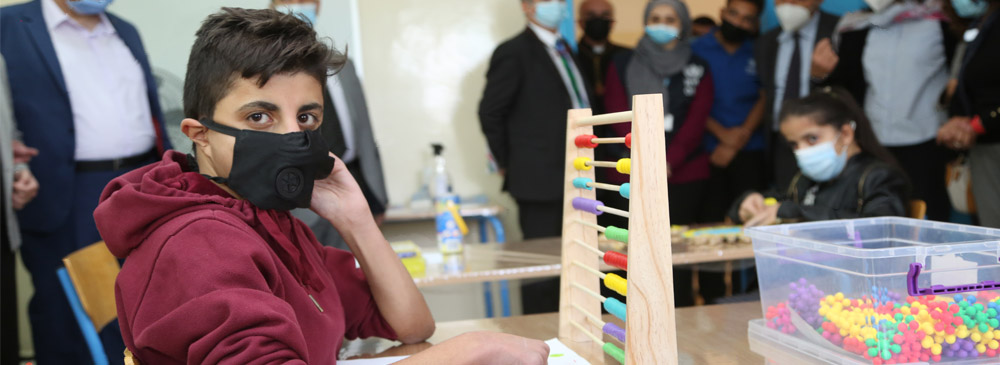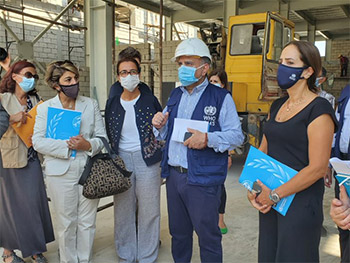
11 October 2022 – A new approach to risk communication and community engagement in Iraq served to expand emergency response capabilities at a time when COVID-19, cholera and Crimean-Congo haemorrhagic fever were all in circulation. WHO and the Iraqi Ministry of Health developed a multifaceted programme to expand risk awareness and refine messaging, leveraging celebrities, community influences, and faith and tribal leaders to extend outreach.
In a new departure for Jordan, social inclusion activities for children with disabilities are being integrated into wider services for children in an innovative scheme. WHO, the Italian Agency for Development Cooperation and the Bayt Illiqa Centre for People with Disabilities have collaborated in the project which aims to destigmatize disability and enhance community bonds.
The Kingdom of Saudi Arabia has successfully eliminated trachoma as a public health problem. Eye care was integrated into primary health care in 1987, and a trachoma elimination programme was launched in 1988, interventions that by 1994 had cut the trachoma prevalence rate from 6.2% to 2.6%
To build on this improvement, Saudi Arabia adopted a multisectoral approach with ministries working together to address socio-economic and environmental factors associated with the disease.
Annual screening activities are carried out with preschool children, the age group at highest risk. The latest survey of preschool children covered 70% of eligible children, and none had any signs of trachoma.
Finance and logistics
 Work in Kuwait to strengthen health financing has emerged as a key component in advancing universal health coverage. A Health Economics and Financing Unit has been established in the Ministry of Health, contributing to building the capacity necessary to make sound health financing decisions.
Work in Kuwait to strengthen health financing has emerged as a key component in advancing universal health coverage. A Health Economics and Financing Unit has been established in the Ministry of Health, contributing to building the capacity necessary to make sound health financing decisions.
After huge explosions in Beirut in August 2020 had devastating consequences for the whole of Lebanon, the country is building back better with a state-of-the-art hub for medical supplies. With a fully automated logistics management system, the new warehouse, which Lebanon’s Ministry of Health, WHO and partners joined together to design and build in just 19 months, supports 830 primary health centres, dispensaries and mobile clinics across the country.


